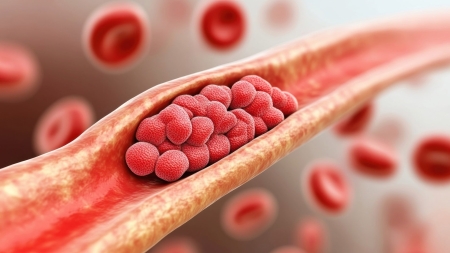Sweet drinks are said to be responsible for ten per cent of diabetes cases
According to a recent study in the journal ‘Nature Medicine’, one in ten cases of diabetes worldwide can be attributed to the consumption of sugary drinks. In addition, one in 30 cases of cardiovascular disease is directly linked to sugary drinks. The international research team behind the study calls for policy action to reduce the health risks.

For their research, the scientists used information from the Global Dietary Database and other surveys and studies from a total of 184 countries. Using a special model that considers factors such as average consumption and health risks, they calculated that 2.2 million new cases of type 2 diabetes and 1.2 million new cases of cardiovascular disease worldwide in 2020 were attributable to the consumption of sweet drinks. This corresponds to 9.8 % of all new cases of type 2 diabetes and 3.1 % of all cardiovascular diseases.
Switzerland above average
In Switzerland, the consumption of soft drinks, lemonades and energy drinks was responsible for 3,750 new cases of type 2 diabetes - a share of 10.5 %. In the case of cardiovascular diseases, the analysis revealed a share of 3.1 % of all new cases, which corresponds to the global average. The figures in Switzerland are therefore at a similar level to other European countries such as Germany, Austria, Spain and Sweden.
Particularly high rates in Latin America and sub-Saharan Africa
However, the figures are significantly higher in Latin America, the Caribbean and sub-Saharan Africa. According to the study, 24.4 % of all diabetes cases in Latin America can be attributed to the consumption of sugary drinks, while in sub-Saharan Africa the figure is 21.5 %. The figures for Colombia are particularly alarming: in 2020, almost half (48.1 %) of all diabetes cases there were linked to the consumption of sugary drinks. These countries are also at the top in terms of per capita consumption.
Influence of commercial interests and water scarcity
The researchers see the economic interests of multinational and local soft drink manufacturers as the main drivers of high consumption. These companies use targeted marketing to promote the sale of their products and at the same time block political measures to reduce consumption. Another problem is the limited access to clean drinking water in countries such as Mexico and Colombia. In these regions, sweet drinks are often consumed as a substitute for water, which further exacerbates the health consequences.
Changing diets
Between 1990 and 2020, the proportion of diabetes cases attributable to sweet drinks increased by 1.3 percentage points worldwide. An increase of 0.6 percentage points was also recorded in Switzerland. While the incidence of cardiovascular diseases caused by sweet drinks remained stable globally, it fell by 0.1 percentage points in Switzerland. However, there are clear differences depending on the region. The increase was particularly strong in sub-Saharan Africa, where the proportion of diabetes cases attributable to sweet drinks rose by 8.8 percentage points. The increase in cardiovascular diseases was 4.4 percentage points. The researchers attribute this development to a change in eating habits: in many regions, the traditional, often healthier diet is increasingly giving way to a more westernised diet with a high proportion of processed foods, sugar and fats.
Call for political measures
The researchers recommend a series of political measures to curb the negative consequences of the high consumption of sweet drinks. These include taxes on sweet drinks, a clear labelling requirement, marketing restrictions and an improved drinking water supply. More than 200 institutions were involved in the international study, including the University Hospitals of Geneva and Lausanne. The authors of the study emphasise that their estimates are based on the best available data and well-founded assumptions - but do not constitute compelling proof of causality.


